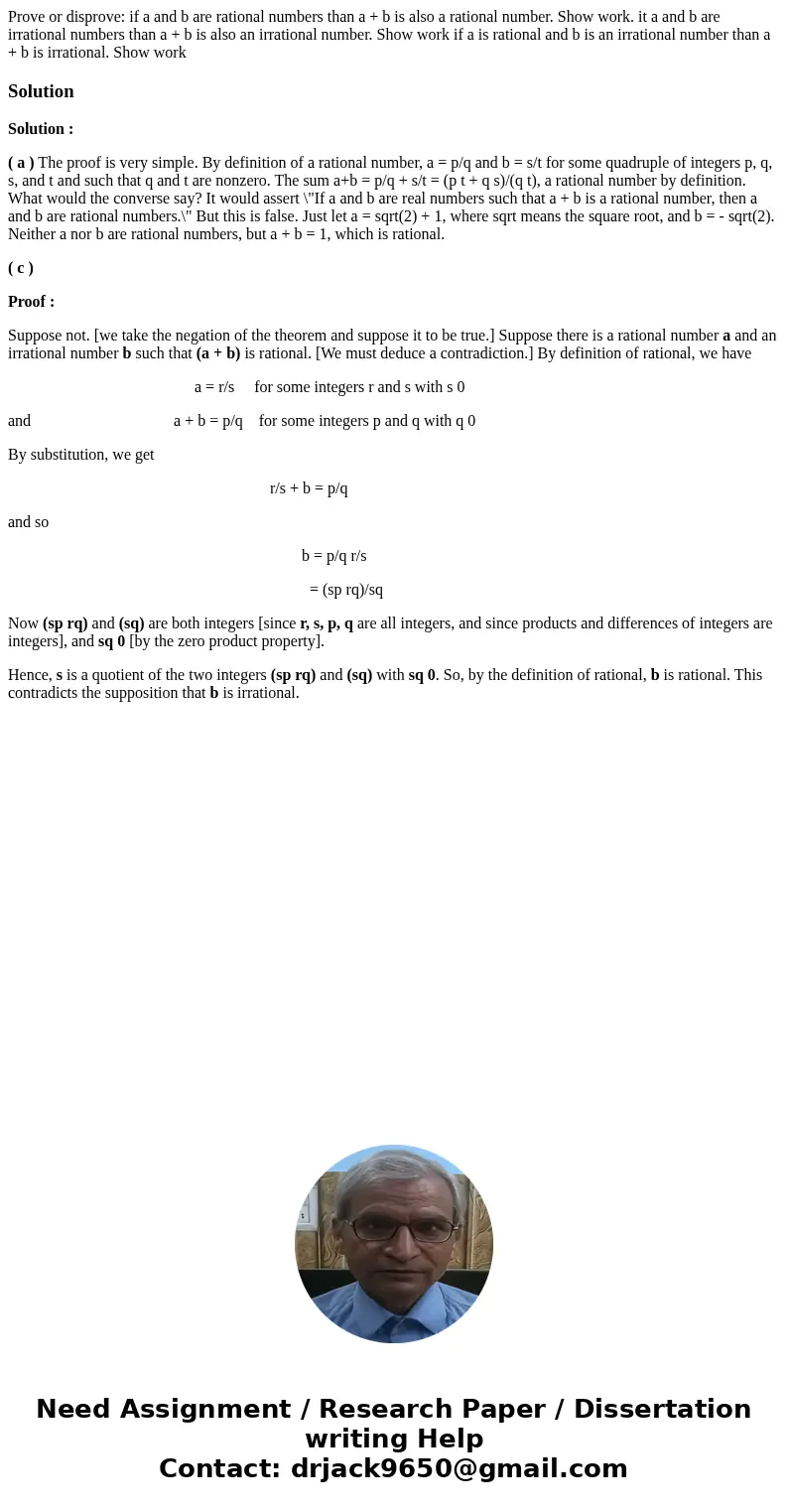Prove or disprove if a and b are rational numbers than a b
Solution
Solution :
( a ) The proof is very simple. By definition of a rational number, a = p/q and b = s/t for some quadruple of integers p, q, s, and t and such that q and t are nonzero. The sum a+b = p/q + s/t = (p t + q s)/(q t), a rational number by definition. What would the converse say? It would assert \"If a and b are real numbers such that a + b is a rational number, then a and b are rational numbers.\" But this is false. Just let a = sqrt(2) + 1, where sqrt means the square root, and b = - sqrt(2). Neither a nor b are rational numbers, but a + b = 1, which is rational.
( c )
Proof :
Suppose not. [we take the negation of the theorem and suppose it to be true.] Suppose there is a rational number a and an irrational number b such that (a + b) is rational. [We must deduce a contradiction.] By definition of rational, we have
a = r/s for some integers r and s with s 0
and a + b = p/q for some integers p and q with q 0
By substitution, we get
r/s + b = p/q
and so
b = p/q r/s
= (sp rq)/sq
Now (sp rq) and (sq) are both integers [since r, s, p, q are all integers, and since products and differences of integers are integers], and sq 0 [by the zero product property].
Hence, s is a quotient of the two integers (sp rq) and (sq) with sq 0. So, by the definition of rational, b is rational. This contradicts the supposition that b is irrational.

 Homework Sourse
Homework Sourse